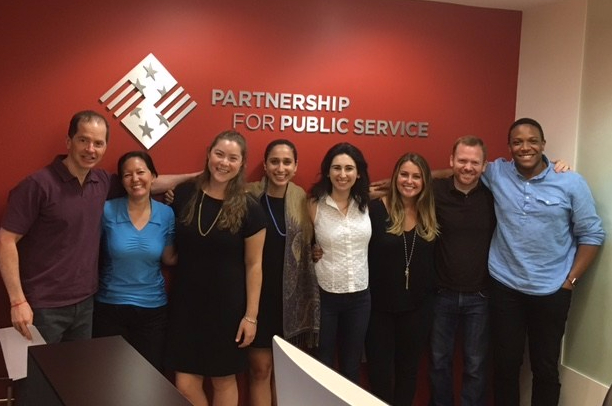We have found a new home! Kindly visit this link in our new website here: https://www.denver-frederick.com/2017/08/28/the-business-of-giving-visits-the-offices-of-ande/
Better Than Most is a regular feature of The Business of Giving examining the best places to work among social good businesses and nonprofit organizations.
Denver: Tonight we’re going to go down to One DuPont Circle in Washington DC to the offices of the Aspen Network of Development Entrepreneurs. Their global membership network of organizations that propel entrepreneurship in emerging markets. We’ll start with their Executive Director, Randall Kempner, and then hear from some other members of the team.
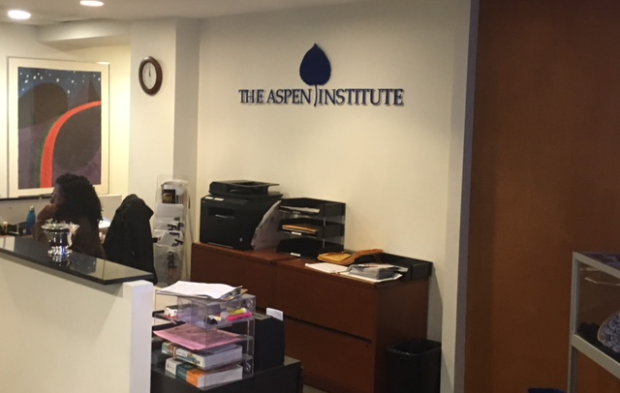
Susannah: I think that one of the ways that we build culture here is a little unusual. We have a Whatsapp group — where it’s a kind of an international texting app — where all the staff were on it all around the world. And because we do have staff in seven different countries around the world, sometimes timezones and things we’re working on can mean we’re not always talking to each other everyday. And so, by using this Whatsapp group, we’re kind of in constant communication.
Stephanie: I think the fact that we send professional shout-outs as well as share photos from vacations shows that we genuinely like each other and care about each other as well. I think that that represents our value; one of our values of working hard and having fun. We worked with a consultant to define some of our values and not just the ones that go on the website. What does the staff think of? What matters to us working here? And so that was actually one that came up sort of across the board because of the idea of working hard but having fun and also valuing diverse opinions.
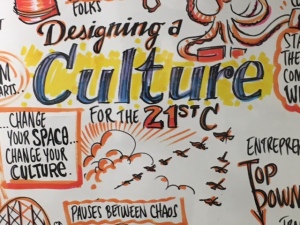 Stephanie: I think that in terms of what our meetings say about us, I think we try to be really conscious of other people’s time. We’re really good about not having meetings just to have a meeting. It’s fine. It’s a kind of if someone sends you a meeting request to just feel like: Hey, is this something that maybe we can do quickly over email? Just not forcing to be there who don’t necessarily needs to be there. So I think that always an open discussion and dialogue and I appreciate that.
Stephanie: I think that in terms of what our meetings say about us, I think we try to be really conscious of other people’s time. We’re really good about not having meetings just to have a meeting. It’s fine. It’s a kind of if someone sends you a meeting request to just feel like: Hey, is this something that maybe we can do quickly over email? Just not forcing to be there who don’t necessarily needs to be there. So I think that always an open discussion and dialogue and I appreciate that.
Brianna: What I would say is really the wow factor about ANDE is how much we do with so little. The organization isn’t even ten years old; it was founded in 2009. And it’s just been amazing to me to see the network that they’ve been able to build. The sort of tools that they’ve been able to put in place for members. It’s funny because we do have this goal of elevating countries out of poverty. It’s not just something we write. It’s something you can feel in the organization. There’s really a sense of urgency about it, but we don’t necessarily take ourselves very seriously. We have a lot of fun while we’re doing it. We take the work that we’re doing very seriously and you can really feel that. I think that’s one of the things that initially really surprised me coming on board, but it’s just how much we get done in so little time with so few resources. That’s something that continues to impress me that I’m really proud to be a part of.
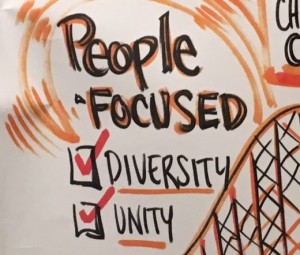 Susanna: Speaking of silos, our physical office is moving and we are one of over 40 different programs at the Aspen Institute. It is kind of an umbrella organization but we’re a part of that culture in a sense that the Aspen Institute has many programs have different issue areas that they’re working on. But ultimately, often the goal is around bringing people together who should be talking to each other but aren’t and kind of providing these forums where people can have these non-partisan discussions where there is an equal playing field for everyone. ANDE does that in the context of small and growing businesses in developing countries. So our offices themselves are moving and in that move, we had the opportunity to kind of create a new space. And so, they engage everyone within the organization within the Aspen Institute to understand: Where are the silos? How can we help break them down? How a space plays a part in that? How does technology play a part in that?
Susanna: Speaking of silos, our physical office is moving and we are one of over 40 different programs at the Aspen Institute. It is kind of an umbrella organization but we’re a part of that culture in a sense that the Aspen Institute has many programs have different issue areas that they’re working on. But ultimately, often the goal is around bringing people together who should be talking to each other but aren’t and kind of providing these forums where people can have these non-partisan discussions where there is an equal playing field for everyone. ANDE does that in the context of small and growing businesses in developing countries. So our offices themselves are moving and in that move, we had the opportunity to kind of create a new space. And so, they engage everyone within the organization within the Aspen Institute to understand: Where are the silos? How can we help break them down? How a space plays a part in that? How does technology play a part in that?
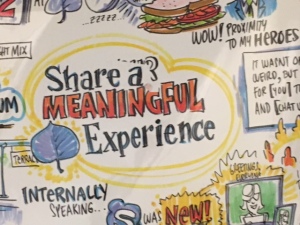 Brianna: We also have weekly check-ins in which it’s basically like: Here’s what I’m working on. Here’s how it’s going. Here’s where I could use your feedback. I found this to be extremely helpful. But one thing that I love about Genevieve, my supervisor, is that she’s able to be very honest and say, “How was your workload?” And I feel like I can very honestly be like, “It’s not good right now” or “I’m actually feeling okay” That’s been one of my favorite thing — to feel that not only management cares about my work-life balance but be able to honestly talk about it. I think we are all very ambitious and try and do a lot with a little but not being burned out is in everyone’s best interest and I loved that. ANDE really tries to recognize that.
Brianna: We also have weekly check-ins in which it’s basically like: Here’s what I’m working on. Here’s how it’s going. Here’s where I could use your feedback. I found this to be extremely helpful. But one thing that I love about Genevieve, my supervisor, is that she’s able to be very honest and say, “How was your workload?” And I feel like I can very honestly be like, “It’s not good right now” or “I’m actually feeling okay” That’s been one of my favorite thing — to feel that not only management cares about my work-life balance but be able to honestly talk about it. I think we are all very ambitious and try and do a lot with a little but not being burned out is in everyone’s best interest and I loved that. ANDE really tries to recognize that.
Randall: One is our sort of external focus, and that is very much of a kind of a customer service mentality. And the kinds of people that thrive in ANDE are people that recognize that we are in a member service organization and you got to like to ask the question: What can I do for you? People who like to ask that question and get a thrill out of actually accomplishing that are going to be a good fit here.
People make a company. People make an organization. And what makes people tick and creates an environment in which people can thrive or not is the culture in which they’re working.
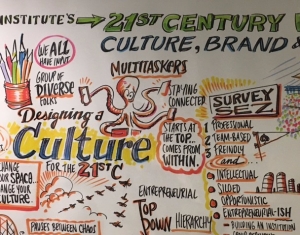 Randall: Here’s a term which I like, which may be different. It didn’t make it to our official list of values, but it was close, and it’s “celebrate irreverence.” That is very much my perspective. I would like people to not necessarily take the status quo. I want people to challenge. But irreverence kind of in a soft way, right? It’s not disrespectful. It’s saying, “Well, you know what, we’re going to do things in a different way. Like we’re going to be informal, we’re going to try it. We’re not going to do it. We’re not going to wear tie because people have to wear tie.” I really want that to be the vibe. Again, it’s not about whatever every other NGO is doing. It’s not about the traditions of Washington DC and the formalities supposed to exist. It’s about being creative and celebrating that and not having to agree all the time.
Randall: Here’s a term which I like, which may be different. It didn’t make it to our official list of values, but it was close, and it’s “celebrate irreverence.” That is very much my perspective. I would like people to not necessarily take the status quo. I want people to challenge. But irreverence kind of in a soft way, right? It’s not disrespectful. It’s saying, “Well, you know what, we’re going to do things in a different way. Like we’re going to be informal, we’re going to try it. We’re not going to do it. We’re not going to wear tie because people have to wear tie.” I really want that to be the vibe. Again, it’s not about whatever every other NGO is doing. It’s not about the traditions of Washington DC and the formalities supposed to exist. It’s about being creative and celebrating that and not having to agree all the time.
Randall: The second thing I would say is that we have become a place where we recognize that if you want to treat people the same, then you treat them differently. What I mean by that is that the way I want to treat someone the same is to recognize that every individual is different and is going to have a different need. If we can let the person that wants to work from home more, work from home more, great. The person that wants to work in the morning instead of the night, great. The person that wants to have their vacation as three consecutive weeks versus a bunch of different weekends, great. The person that they want to move and work in a different community. We want to try to find those things that reflect the particular needs of people so that everyone feels like they’re getting a special deal, and the special deal becomes the quality across the numbers, or across the staff. We’re not perfect. The way I want to treat someone the same is to recognize that every individual is different and is going to have a different need.

Denver: I would like to thank those who participated: Randall Kempner, Stephanie Buck, Brianna Losoya-Evora and Susannah Eastham. You can listen to this again, read the transcript and see pictures of the participants and the offices of the Aspen Network of Development Entrepreneurs just by going to denverfrederick.wordpress.com
The Business of Giving can be heard every Sunday evening between 6:00 p.m. and 7:00 p.m. Eastern on AM 970 The Answer in New York and on iHeartRadio. You can follow us @bizofgive on Twitter, @bizofgive on Instagram and at http://www.facebook.com/BusinessOfGiving

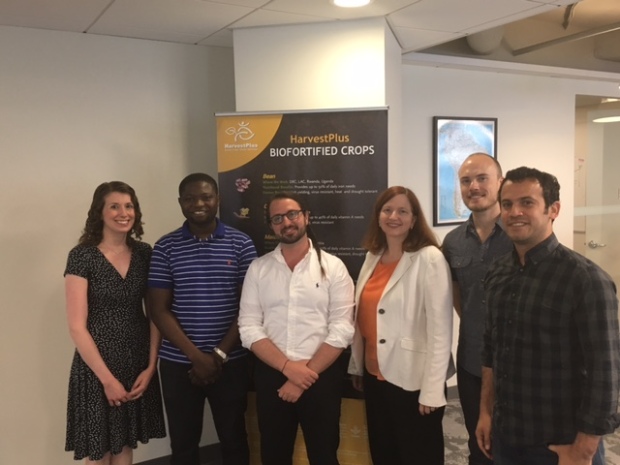
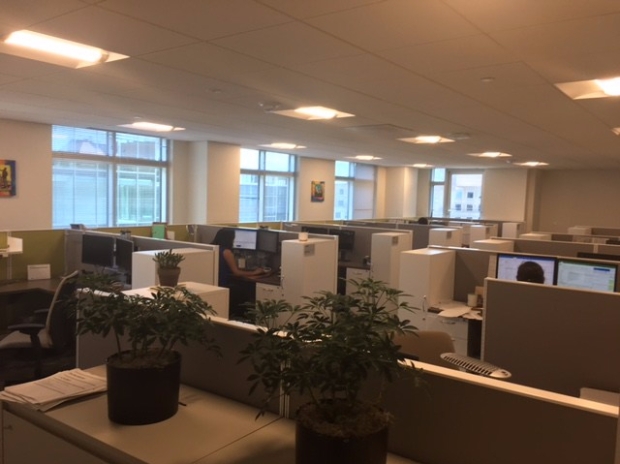


 Kelly Davis: One of my favorite parts about working at MHA is really the open style of communication and lack of really enforced kind of power roles that exist. I think especially, traditionally in the nonprofit sector and in kind of government work. Because here, we are always making jokes with each other. We share a lot of memes online. We have a lot of inside jokes. Our CEO made his own meme. And we can shoot jokes back and forth. I mean when you work in nonprofit especially, a lot of the problems you’re working on are really serious and it can be hard to keep up with that stamina of working in such intense work. But when you have an environment that’s so open and can keep the playfulness, it’s easier for passion to stay alive. I would also say that the openness and the lack of intense structure mean that everybody’s ideas are important. So I’ve been here for two years and I can just walk into our CEO’s office and say, “Hey, this is a thing I think it’s important. And this is why I think it’s important. Can I do something like this?” And he gives me feedback. I’m 24 and when I talk to other people my age, that’s really, really rare. So I love MHA.
Kelly Davis: One of my favorite parts about working at MHA is really the open style of communication and lack of really enforced kind of power roles that exist. I think especially, traditionally in the nonprofit sector and in kind of government work. Because here, we are always making jokes with each other. We share a lot of memes online. We have a lot of inside jokes. Our CEO made his own meme. And we can shoot jokes back and forth. I mean when you work in nonprofit especially, a lot of the problems you’re working on are really serious and it can be hard to keep up with that stamina of working in such intense work. But when you have an environment that’s so open and can keep the playfulness, it’s easier for passion to stay alive. I would also say that the openness and the lack of intense structure mean that everybody’s ideas are important. So I’ve been here for two years and I can just walk into our CEO’s office and say, “Hey, this is a thing I think it’s important. And this is why I think it’s important. Can I do something like this?” And he gives me feedback. I’m 24 and when I talk to other people my age, that’s really, really rare. So I love MHA. Michael: Everyone that comes to our office is always wowed to its appearance and its openness. We have windows. We’re on the 8th floor and we can even see the Washington Monument and the dome on the Jackson Memorial. We see the airplanes flying in over the Potomac River. On the other side, we can look over one of our four balconies that are wi-fi capable and fully-furnished. We can look over and see United Way building and the MGM Casino and Hotel. It’s just a fabulous place. I think Sacha mentioned that it’s like being at home. And when we moved in, a lot of staff took the liberty to stay after hours and enjoy the snacks that we provide. It is always well-stocked. One of my responsibilities is to make sure that all staff had everything that they need to do their job effectively and efficiently.
Michael: Everyone that comes to our office is always wowed to its appearance and its openness. We have windows. We’re on the 8th floor and we can even see the Washington Monument and the dome on the Jackson Memorial. We see the airplanes flying in over the Potomac River. On the other side, we can look over one of our four balconies that are wi-fi capable and fully-furnished. We can look over and see United Way building and the MGM Casino and Hotel. It’s just a fabulous place. I think Sacha mentioned that it’s like being at home. And when we moved in, a lot of staff took the liberty to stay after hours and enjoy the snacks that we provide. It is always well-stocked. One of my responsibilities is to make sure that all staff had everything that they need to do their job effectively and efficiently.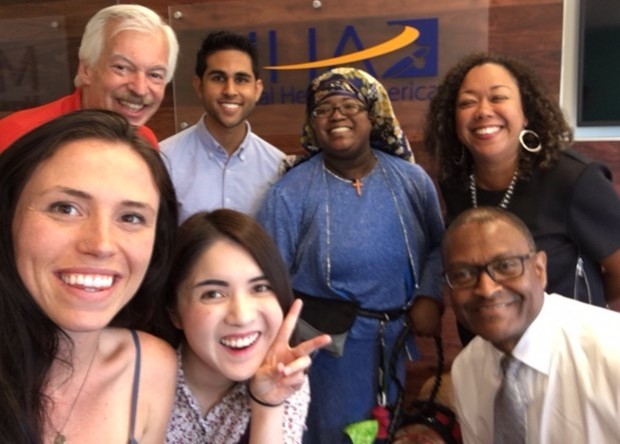


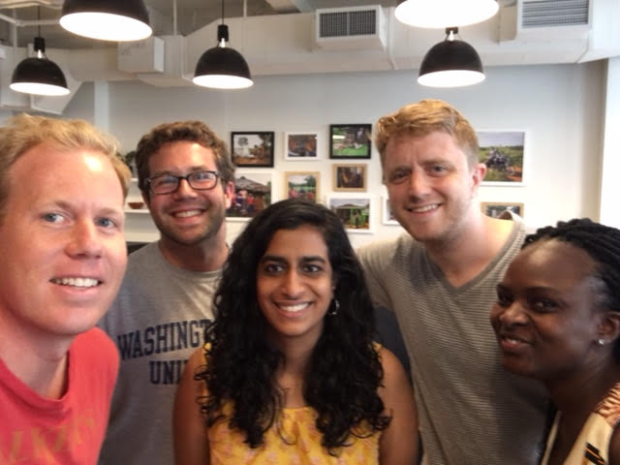
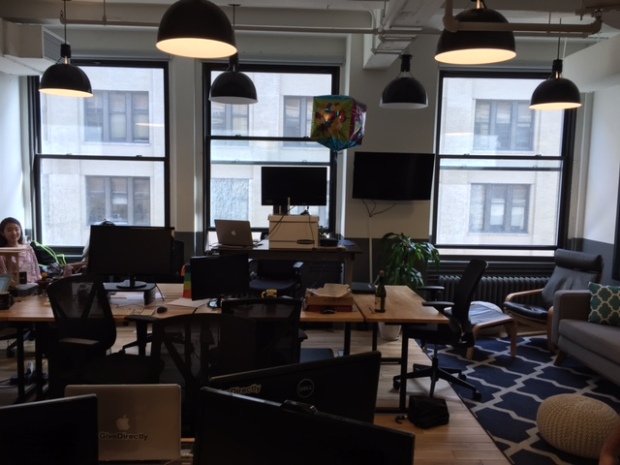
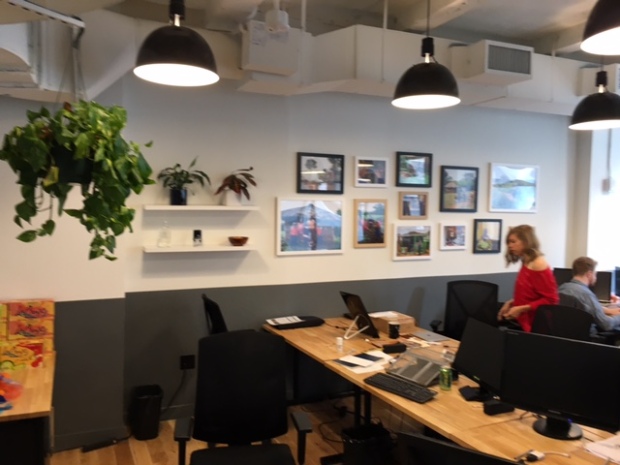

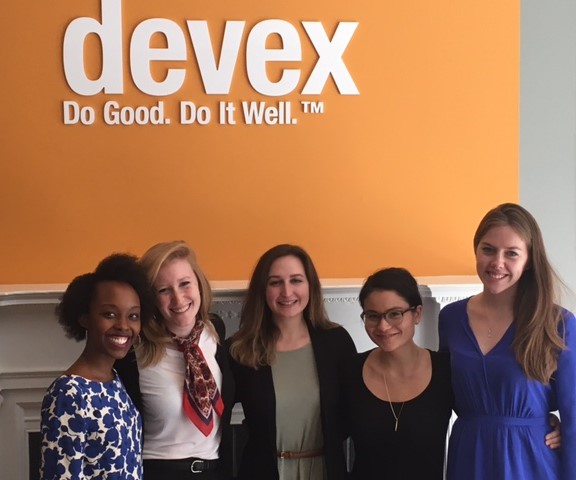

 Colleen: One of the “Wow” moments for me working at Devex–and a lot of us here have come from other companies–is related to these reviews. And even at the time when we were doing them semi-annually, one of the questions that always gets asked is “What do you want to do within your profile that’s outside of what your job description is?” And I think that it’s a unique and special thing to be asked what more do you want to do, maybe not necessarily specifically within your role, but what are you interested in.
Colleen: One of the “Wow” moments for me working at Devex–and a lot of us here have come from other companies–is related to these reviews. And even at the time when we were doing them semi-annually, one of the questions that always gets asked is “What do you want to do within your profile that’s outside of what your job description is?” And I think that it’s a unique and special thing to be asked what more do you want to do, maybe not necessarily specifically within your role, but what are you interested in.

 Margaret: I will say that all the things that we’ve mentioned are because our leadership across the board thinks that it’s important to be constantly changing and evolving. And while the focus is always helping the people who are doing good work do it even better, we are constantly looking at ourselves and evaluating the data that we’re—we collect data on ourselves, on how people connect to the mission, on how people are feeling. We’re data driven. We really are. And so, when leadership looks at the data, when anyone looks at the data and says, “What about this idea? What if we add wellness walks because people are feeling like they don’t have enough—they’re not pushing themselves to work out? So what if we just all get out of the office?” or “What if we really try to focus on getting diversity in this area?” Anytime that people look at the data and have ideas, they’re taken seriously.
Margaret: I will say that all the things that we’ve mentioned are because our leadership across the board thinks that it’s important to be constantly changing and evolving. And while the focus is always helping the people who are doing good work do it even better, we are constantly looking at ourselves and evaluating the data that we’re—we collect data on ourselves, on how people connect to the mission, on how people are feeling. We’re data driven. We really are. And so, when leadership looks at the data, when anyone looks at the data and says, “What about this idea? What if we add wellness walks because people are feeling like they don’t have enough—they’re not pushing themselves to work out? So what if we just all get out of the office?” or “What if we really try to focus on getting diversity in this area?” Anytime that people look at the data and have ideas, they’re taken seriously.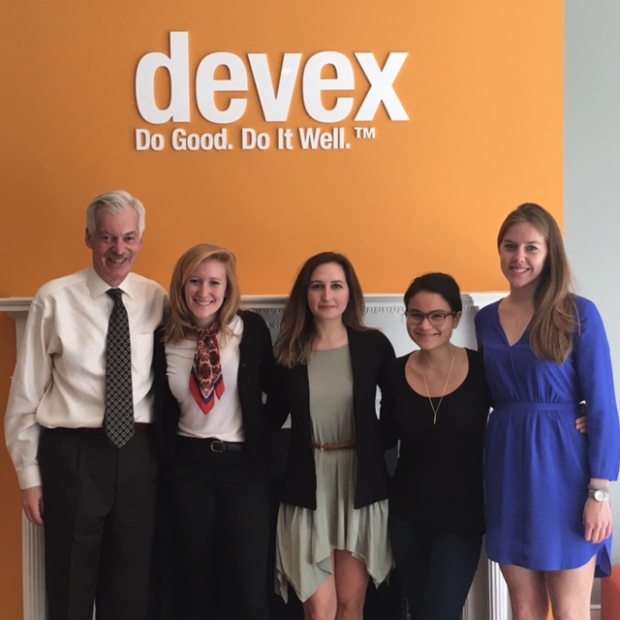

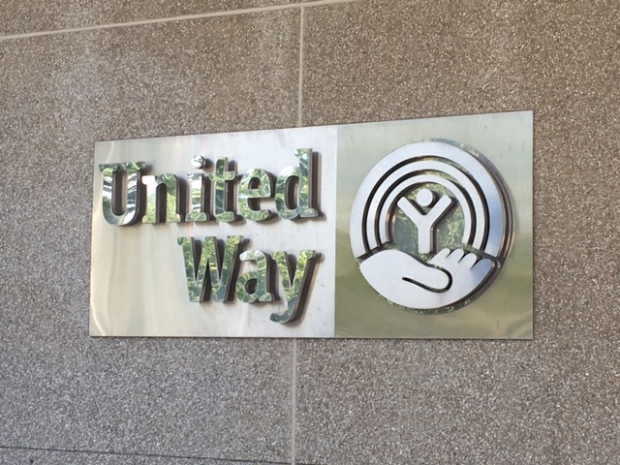
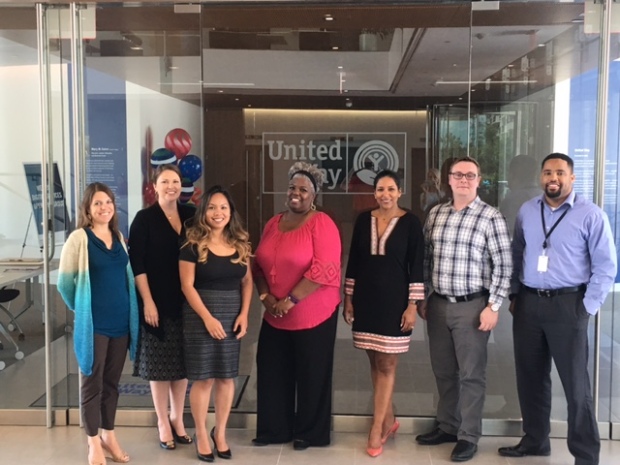
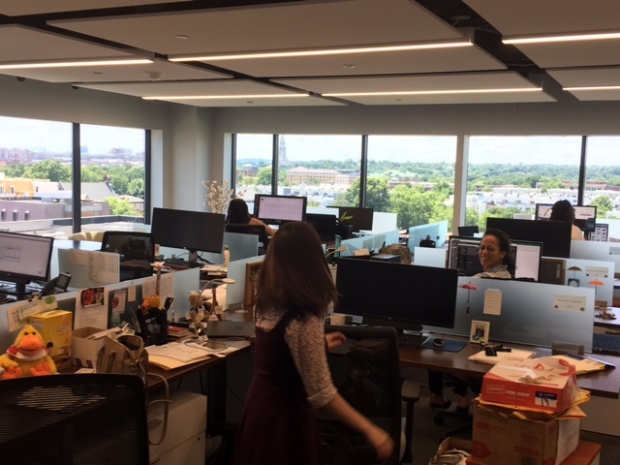


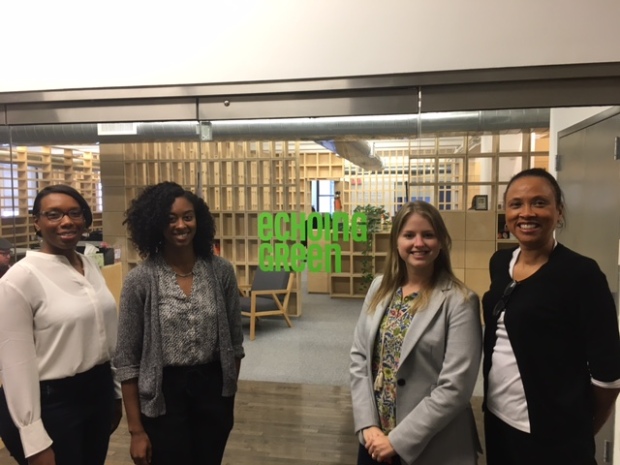
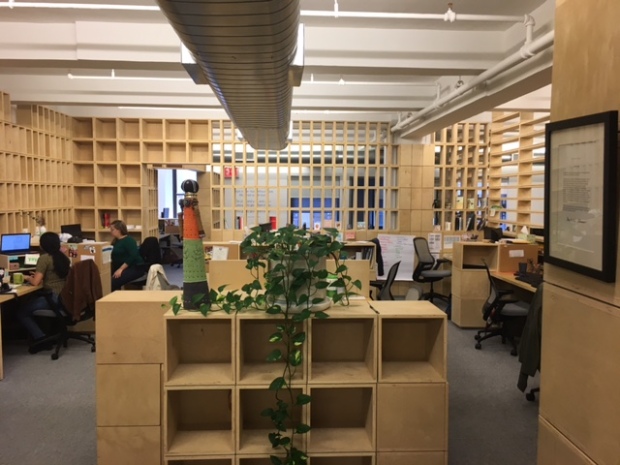


 Lindsay:
Lindsay: 

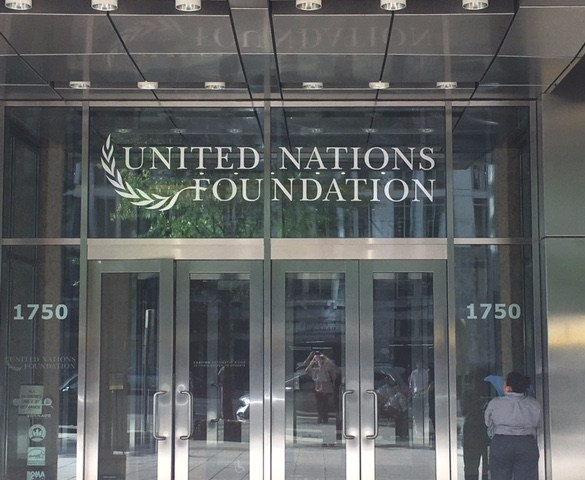
 Seema
Seema Annie: Sometimes I would do social media, so sometimes it’s just like: Okay, [this just feels] that I’ve been tweeting and Instagram posting a lot… like what does that do? And then all of the sudden the numbers start rolling in and 2000 journalists who’d been trained all over the world who now know how to talk about sustainable development goals. It’s 200 kids in Uganda who got to meet with a soccer star to learn about the sustainable goals and engage in sports and education.
Annie: Sometimes I would do social media, so sometimes it’s just like: Okay, [this just feels] that I’ve been tweeting and Instagram posting a lot… like what does that do? And then all of the sudden the numbers start rolling in and 2000 journalists who’d been trained all over the world who now know how to talk about sustainable development goals. It’s 200 kids in Uganda who got to meet with a soccer star to learn about the sustainable goals and engage in sports and education.
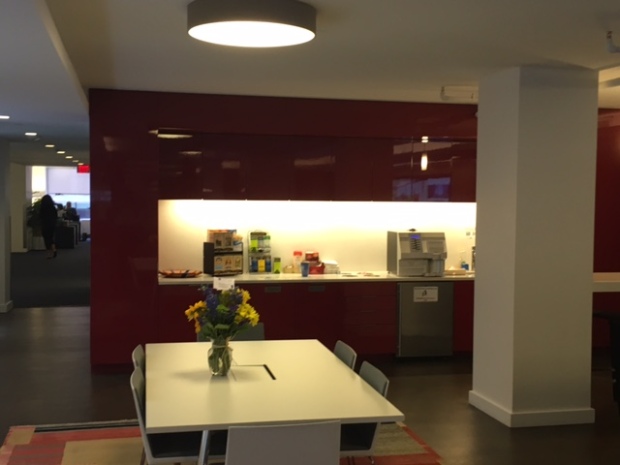
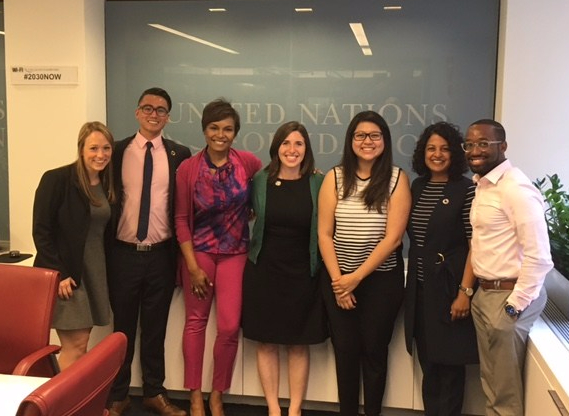

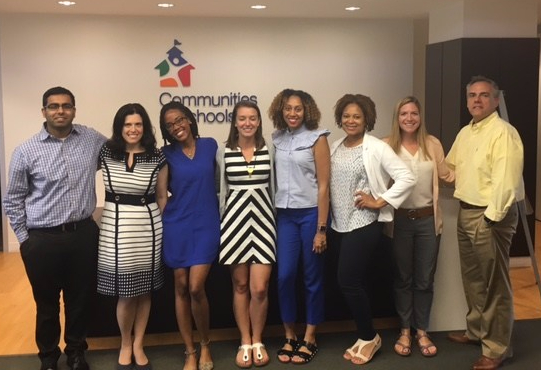

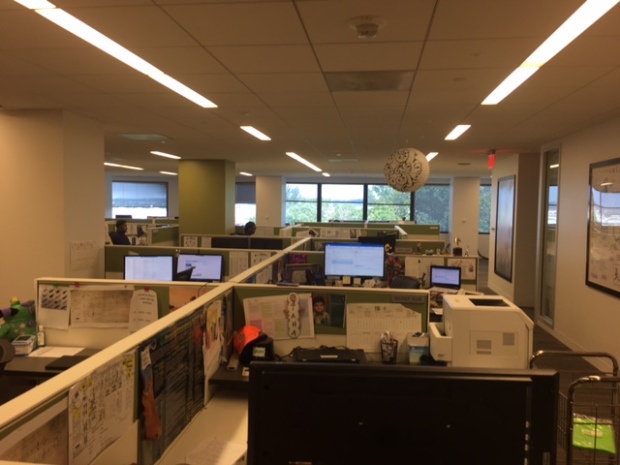


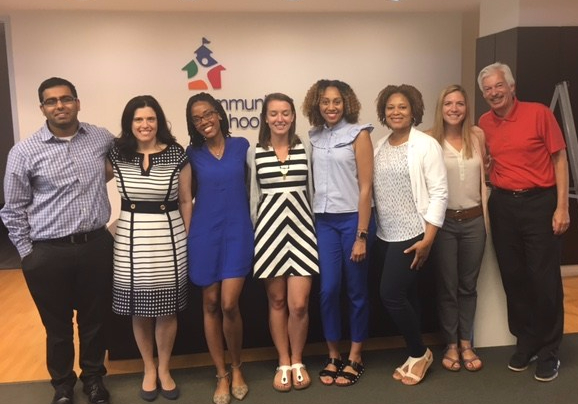

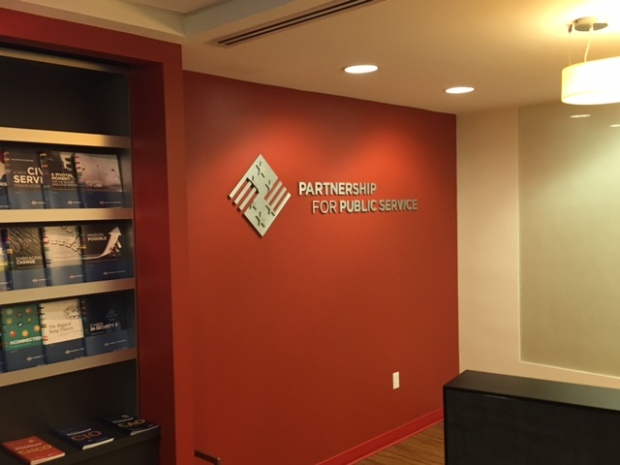
 Amiko: There are things like that that we certainly look for and it is going to be the right fit for somebody but I also want to highlight it from a cultural fit, there’s also this willingness and acknowledgement that we want people to enhance their culture. So it’s not just the people who fit in a particular mold but who will help us improve what we do and have this willingness to bring different ideas and help us grow and sometimes that’s asking tough questions and helping us to think about how we might do something differently or better.
Amiko: There are things like that that we certainly look for and it is going to be the right fit for somebody but I also want to highlight it from a cultural fit, there’s also this willingness and acknowledgement that we want people to enhance their culture. So it’s not just the people who fit in a particular mold but who will help us improve what we do and have this willingness to bring different ideas and help us grow and sometimes that’s asking tough questions and helping us to think about how we might do something differently or better.